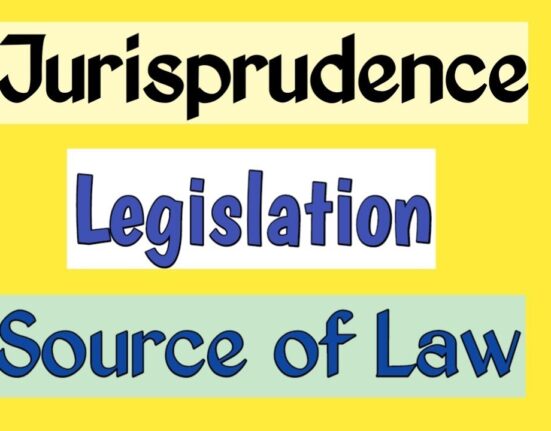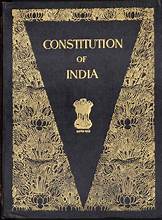Sakkera Rahul, a 3rd – year law student from Dr Ambedkar Global Law Institute tirupati has written this article on “The Significance of Character Relevance in Indian Evidence Law”.
Introduction
The significance of character relevance in Indian evidence law is a fundamental and multifaceted aspect that holds significant importance in judicial proceedings. The Indian Evidence Act, 1872, governs the admissibility and treatment of character evidence in both civil and criminal cases. Character evidence refers to information about an individual’s moral character, traits, and behaviour, which can provide valuable insights into their credibility and veracity. However, the admissibility of such evidence is a subject of considerable legal scrutiny and debate due to its potential prejudicial impact on judicial decisions.
The overarching principle of propensity operates in the Indian legal system regarding character evidence, which posits that one cannot use character to prove an individual’s conduct on a specific occasion. The objective is to safeguard the accused from facing unfair judgment based on their general character instead of the relevant evidence concerning the current case. Despite this general rule, there are exceptions in which character evidence becomes relevant, particularly when the character of the accused or the victim is itself a substantive fact in the case.
We are going to see character relevance in the significance of character relevance in Indian evidence law, examining the principles established through landmark case laws and the perspectives of renowned legal experts. By understanding the intricacies of character evidence and its limitations, we can ensure a fair and impartial administration of justice while upholding the integrity of the Indian legal system.
Character Evidence under Indian Evidence Law
In the Indian evidence law, the significance of character relevance governs character evidence through Sections 52 to 55 of the Indian Evidence Act, 1872. These sections deal with the admissibility and restrictions placed on character evidence in both civil and criminal cases. While character evidence can provide valuable insight into an individual’s traits, moral values, and credibility, it also has the potential to be prejudicial and sway the judgement.
The Role of Character Evidence in Evaluating Credibility
Character evidence is instrumental in assessing the credibility and reliability of witnesses. Witnesses’ general reputation for truthfulness or untruthfulness can provide valuable insights into the veracity of their testimonies. By allowing the introduction of character evidence for witness evaluation, the courts aim to uphold the principle of justice and ensure that only credible testimonies hold weight in legal proceedings.
The Impact of Character Evidence in Criminal Cases
In criminal cases, character relevance plays a vital role in determining the accused’s guilt or innocence. While the general rule prohibits the use of character evidence to prove a person’s propensity to commit a crime, there are exceptions when character becomes a substantive fact in the case. For example, character evidence may be admissible in cases involving defamation or where the victim’s character is at issue.This ensures that unfair prejudice is not cast upon the accused’s character, and the focus stays directed towards the specific evidence connected to the case.
Balancing the Use of Character Evidence
The Indian evidence law strikes a balance between admitting character evidence when it is relevant and avoiding its misuse to prejudice the accused or the victim. This approach safeguards the accused’s right to a fair trial while considering instances where character becomes a crucial aspect of the case. The courts carefully evaluate the relevance and probative value of character evidence to ensure its judicious use in legal proceedings.
Preventing Character Assassination
One critical aspect of character relevance in Indian evidence law is preventing character assassination. The law prohibits the introduction of character evidence solely to defame the accused or the victim. Instead, character evidence should be limited to instances where it directly relates to the case and is essential for arriving at a just and fair decision.
Expert Perspectives on Character Relevance
Legal experts and scholars have extensively studied the importance of character relevance in Indian evidence law. Their insights provide valuable guidance to the courts in making informed decisions on the admissibility and impact of character evidence. Expert opinions emphasise the need for caution in handling character evidence to ensure that it aligns with the principles of fairness and justice.
Character relevance holds significant importance in Indian evidence law, contributing to the evaluation of witness credibility and determining guilt or innocence in criminal cases. While character evidence can be relevant in specific scenarios, it should be judiciously used to prevent character assassination and uphold the principles of fairness in legal proceedings. By striking a careful balance and relying on expert insights, Indian courts can ensure the proper application of character relevance in the pursuit of justice and the protection of individual rights.
The Principle of Propensity
Character evidence plays a significant role in evidence law, particularly in criminal proceedings, where the character of the accused or the victim can be highly relevant. However, Indian evidence law follows the principle of propensity, which governs the use of character evidence. This principle establishes the admissibility and limitations of character evidence to ensure a fair trial and protect the rights of the accused. In this essay, we will delve into the principle of propensity under Indian evidence law, examining its significance and providing relevant examples to illustrate its application.
The Principle of Propensity in Indian Evidence Law
The principle of propensity, as enshrined in Sections 52 to 55 of the Indian Evidence Act, 1872, restricts the use of character evidence to prove the conduct of a person on a specific occasion. The main objective of this principle is to prevent the misuse of character evidence, which may lead to prejudiced judgements based on a person’s general disposition rather than the evidence pertaining to the specific case at hand.
Prohibiting propensity inferences
Section 54 of the Indian Evidence Act explicitly prohibits the use of character evidence to prove that a person committed a particular act based on their general disposition. This means that character evidence cannot be introduced to argue that an individual is likely to commit a crime due to their past behaviour. The court should focus on the evidence relevant to the specific case rather than being influenced by an individual’s character.
Exceptions to the Propensity Rule
While the principle of propensity restricts the general use of character evidence, there are exceptions where character becomes relevant in Indian courts. One such exception is when the character of the accused or the victim is a substantive fact in the case. For example, in a defamation case, character evidence may be admissible to assess the reputation of the victim, as their character is directly relevant to the case.
Examples of the Principle of Propensity
- In a criminal trial, the accused is charged with theft. The prosecution attempts to introduce evidence of the accused’s past criminal record to argue that the accused is prone to committing theft due to their criminal history. However, the court applies the principle of propensity and rules that the character evidence is inadmissible to prove the specific act of theft.
- In a murder case, the defence seeks to present evidence of the victim’s violent and aggressive behaviour in their daily lives. The defence argues that the victim’s character is relevant to establishing their aggressiveness and potential involvement in a fight leading to the murder. In this scenario, the court allows the character evidence to be admitted as the victim’s character is a substantive fact in the case.
The principle of propensity in character relevance under Indian evidence law is vital for ensuring a fair trial and preventing prejudiced judgements. By restricting the use of character evidence to prove a person’s general disposition, Indian courts safeguard the rights of the accused and maintain the integrity of the legal system. While exceptions exist, courts must exercise caution and apply the principle judiciously to avoid the misuse of character evidence and uphold the principles of justice and equity.
Case Laws and Judgements
Several landmark case laws have shaped the jurisprudence surrounding character evidence in India. Such as
R v. Makanlal (AIR 1964 SC 852),
The Supreme Court held that character evidence is admissible if the accused introduces their good character as evidence. In such cases, the prosecution can rebut the character evidence by presenting evidence of bad character.
Facts of the Case
In the case of R v. Makanlal, the accused, Makanlal, was charged with the murder of his business partner. During the trial, the defence sought to present character evidence to establish that the accused had a reputation for being peaceful and non-violent, thus arguing against his involvement in the alleged crime. The prosecution objected to the admissibility of character evidence, relying on the principle of propensity under Indian evidence law.
Issues involved
The main issue in the case was whether character evidence could be admitted to prove the accused’s general disposition and credibility in a criminal trial, in light of the principle of propensity under Indian evidence law.
Relevance of Character Evidence in Indian Evidence Law
The principle of propensity in Indian evidence law, as embodied in Sections 52 to 55 of the Indian Evidence Act, prohibits the use of character evidence to prove a person’s conduct on a specific occasion. This means that character evidence cannot be used to argue that an individual is likely to commit a crime based on their general disposition or reputation.
Judgement
The Supreme Court of India, in its ruling on R v. Makanlal, affirmed the principle of propensity and clarified the admissibility of character evidence in criminal trials. The court held that character evidence to prove general reputation or disposition is generally inadmissible under the Indian Evidence Act.
However, the court also recognised an exception to the principle of propensity. It stated that if the accused introduces evidence of their good character as a substantive fact, the prosecution can rebut this evidence by presenting evidence of bad character. This exception allows the prosecution to challenge the accused’s character evidence and present evidence to the contrary.
In the specific case of R v. Makanlal, the Supreme Court ruled that the defence’s attempt to introduce character evidence to establish the accused’s reputation for being peaceful and non-violent was not permissible under the principle of propensity. The court restated that using character evidence to prove the accused’s innocence or guilt in relation to the specific crime charged was not permissible.
The case of R v. Makanlal Is a significant landmark judgement in Indian evidence law as it reaffirms the principle of propensity and its limitations on the admissibility of character evidence in criminal trials. The case clarifies that character evidence to prove general disposition or credibility is generally inadmissible, but an exception exists when the accused introduces evidence of their good character. This judgement highlights the importance of adhering to the principles of fairness and objectivity in assessing character evidence in legal proceedings.
Case Law: State of UP v. M.K. Anthony (1985 SCR Supl. (1) 505)
The case of State of UP v. M.K. Anthony is a landmark judgement that significantly contributed to the jurisprudence surrounding character relevance in Indian evidence law. This case delved into the admissibility and relevance of character evidence to assess the credibility of witnesses and highlighted the limitations and principles governing its use.
Facts of the Case
In this case, the appellant, M.K. Anthony, was convicted by the trial court for the murder of his wife. The key witness for the prosecution was the appellant’s daughter. During the trial, the defence sought to cross-examine the daughter about her character for truthfulness, intending to challenge her credibility as a witness. The trial court disallowed this line of questioning on the grounds that the prosecution had not impeached the witness’s character.
Issues involved
The central issue in this case was whether the defence could cross-examine a prosecution witness regarding their character for truthfulness without the prosecution introducing evidence of the witness’s bad character.
Judgement
The Supreme Court, in its judgement, upheld the importance of character evidence as a tool to assess the credibility of witnesses. It recognised that character evidence can be relevant to determining whether a witness is likely to speak the truth or not. However, the court also emphasised that character evidence should be limited to assessing the general reputation for truthfulness or untruthfulness and should not extend to proving specific instances of conduct.
The court ruled that while the prosecution had not Introduced evidence of the witness’s bad character, the defence could still question the witness about her character for truthfulness. The defence’s ability to question the witness’s credibility in this manner was based on the principle that character evidence can be relevant when assessing the veracity of a witness’s testimony.
Significance of the State of UP v. M.K. Anthony Case
The judgement in the State of UP v. M.K. Anthony case clarified the admissibility and relevance of character evidence in Indian evidence law. The court’s decision affirmed that character evidence can be introduced to assess the credibility of witnesses, but this should be limited to assessing their general reputation for truthfulness or untruthfulness. The judgement set a precedent for allowing the cross-examination of witnesses regarding their character for truthfulness, even without the prosecution introducing evidence of bad character.
The State of UP v. M.K. Anthony case is a pivotal ruling that has shaped the understanding of character relevance in Indian evidence law. It strikes a balance between using character evidence to evaluate witness credibility and preventing the misuse of such evidence to introduce irrelevant or prejudicial information. Legal practitioners continue to cite this case as an authoritative reference in cases involving the admissibility of character evidence for assessing witness credibility in India.
Dr.Avatar Singh and his perspective regarding character relevance
Dr. Avtar Singh, a distinguished legal scholar, is renowned for making profound contributions to the field of evidence law in India. His insights and perspectives have greatly enriched the understanding of complex legal concepts, particularly in relation to character evidence.
Dr. Avtar Singh’s notable work, “Principles of the Law of Evidence,” published in 2019, is a comprehensive exploration of various aspects of evidence law, including the nuanced topic of character evidence. In this seminal book, Dr. Singh delves into the intricate interplay between character evidence and the broader legal landscape. His analysis provides both legal practitioners and scholars with a thorough understanding of the principles and applications of character evidence in Indian courts.
Regarding character evidence, Dr. Avtar Singh’s perspective emphasises the need for a balanced approach. He recognises the potential for prejudice and bias that character evidence can introduce to legal proceedings. By extensively examining case laws and legal precedents, Dr. Singh guides readers through the complexities of character evidence’s admissibility, relevance, and limitations.
In his book, Dr. Singh navigates the contours of Indian evidence law, elucidating how character evidence fits within the larger framework of legal principles. He highlights the exceptions to the general rule against character evidence, stressing the significance of ensuring fairness while evaluating such evidence. Dr. Singh’s work underscores the importance of context and specific circumstances in determining the admissibility and weight of character evidence.
Dr.Avtar Singh’s contribution
Dr. Avtar Singh’s scholarly contributions facilitate a nuanced understanding of character evidence, assisting legal professionals in making informed decisions when presenting or challenging character-related testimony. His meticulous analysis of case laws, along with insightful commentary, equips readers with the tools to navigate the complexities of character evidence and its implications within the Indian legal context.
Moreover, Dr. Avtar Singh’s expertise in evidence law, particularly character evidence, is evident through his seminal work, “Principles of the Law of Evidence.” His perspectives emphasise the need for a judicious approach to character evidence, considering both its potential value and risks. By providing a well-rounded and comprehensive analysis, Dr. Singh’s work continues to guide legal practitioners and scholars in understanding and applying character evidence principles effectively within the Indian legal system.
Conclusion
Within the framework of the significance of character relevance in Indian evidence law, the subject of character evidence is characterized by its complexity and sensitivity. Its relevance, governed by Sections 52 to 55 of the Indian Evidence Act, serves as a significant element in legal proceedings, particularly in criminal cases. This essay has delved into the intricate interplay of character evidence, shedding light on its significance and limitations while referencing key case laws and expert perspectives.
The principle of propensity, which discourages the use of character evidence to establish conduct on specific occasions, underscores the need to ensure fairness and objectivity in legal proceedings. Exceptions, as provided in Section 53, acknowledge instances where character evidence becomes pertinent, allowing for a more comprehensive assessment of cases involving defamation or when the character of the victim or accused is at the heart of the matter.
The jurisprudence carved out through landmark cases such as R v. Makanlal and State of UP v. M.K. Anthony serves as guiding beacons in navigating the nuanced terrain of character evidence. Expert authors like Dr. Avtar Singh, with their deep insights and scholarly works, contribute significantly to the evolving discourse on this subject.
In the end, we must maintain a delicate equilibrium between implementing protective measures against prejudice and pursuing justice. By adhering to established principles, drawing insights from legal experts, and ensuring a balanced approach to character evidence, Indian courts can uphold the integrity of the legal system while safeguarding the rights of both the accused and the victim. In this ever-evolving legal landscape, the relevance of character evidence underscores the dynamic nature of evidence law and the ongoing pursuit of justice in India.
To read related articles click here
Reference
https://www.mlsu.ac.in/econtents/113_Character-Evidence.pdf







Leave feedback about this